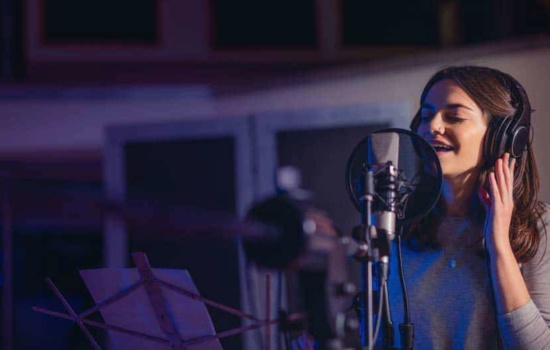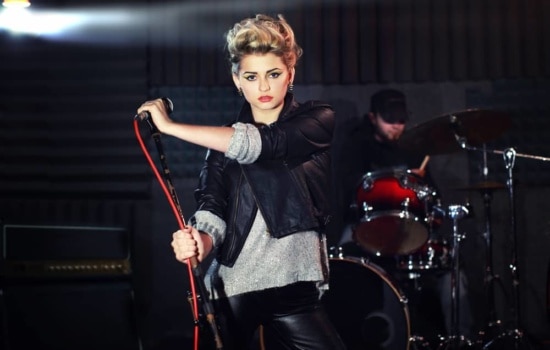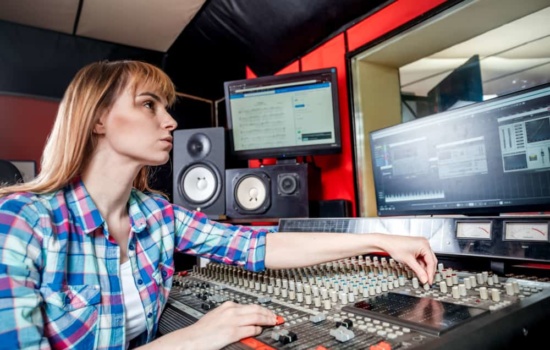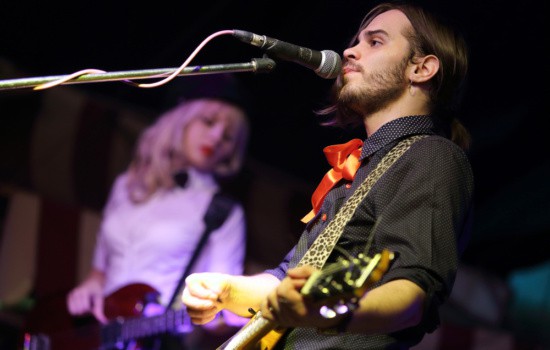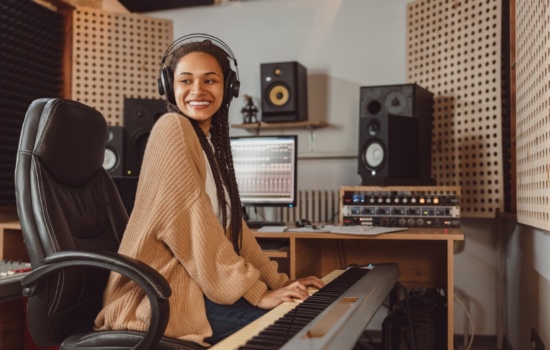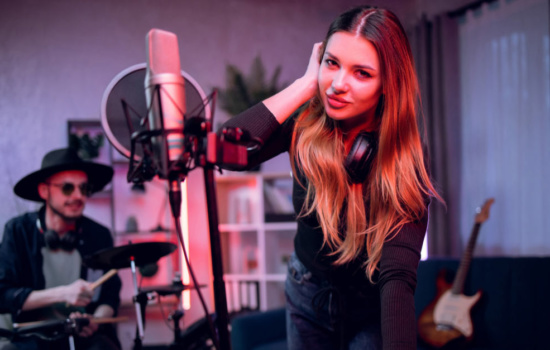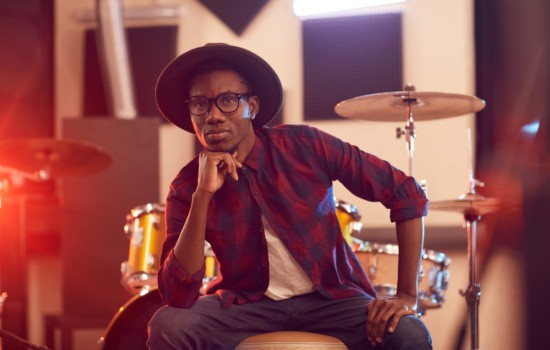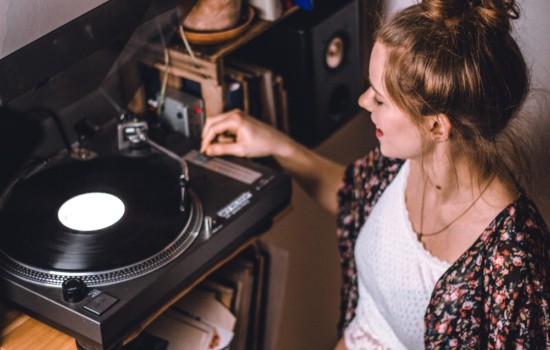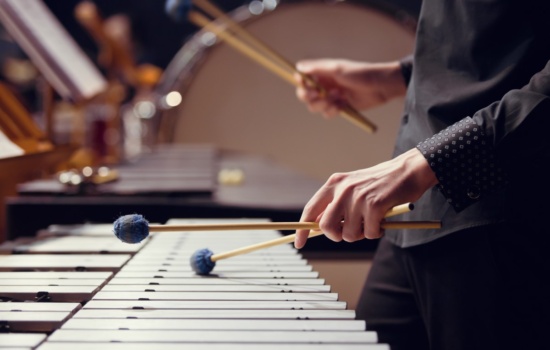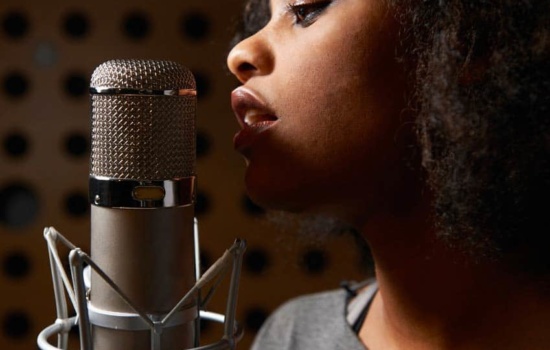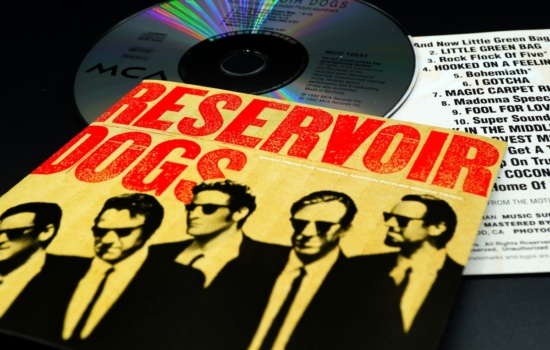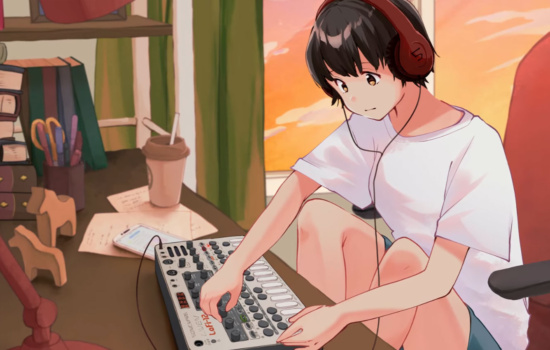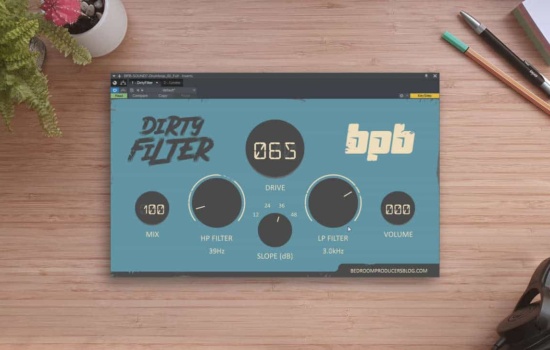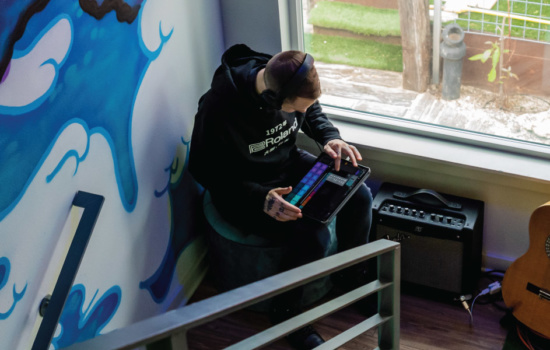DJ
Career Overview
DJs play a continuous mix of music via turntables, CDJs, or software at parties, clubs, bars, concert venues, raves, and music festivals. Most popular DJs also write and produce their own tracks.
Alternate Titles
Nightclub DJ, Deejay, Disc Jockey
Avg. Salary
$49 an hour1
Salary Range
$21,000 to $46,000,0002

How To Become a DJ
People also ask
Career Description
A DJ provides the soundtrack to the party at bars, nightclubs, concert venues, parties, raves, and music festivals. DJs must constantly work to refine their craft and to produce new music under their own names if they want to stay competitive. They must have a deep love and knowledge of their chosen genre in order to keep the crowd on the dance floor.
The term “DJ” originally referred to people who worked at radio stations playing records on air (vinyl disks) but the role has now expanded widely to describe those who mix music from any recorded source, such as vinyl, cassettes, CDs, or digital audio files, including music sampled from other sources. While the earliest DJs used record players and cassettes played on boomboxes to create their mixes, there is now specialized music software available that allows DJs to listen to and manipulate digital audio files.
Different types of DJs specialize in different areas of the music industry; for example, there are DJs who perform at weddings, private and corporate events, while others specialize in producing music mixes under their own name and performing in clubs, at raves, and in residencies. Contemporary DJs (usually branded into musical categories such as House, Techno, or Hip-Hop) also create and mix their own beats, bass lines, and loops, which are then used by Rappers as the backing track for their live performances.
DJs perform in many additional genres, such as Dance Hall, Reggaeton, and Dub, and some DJs also sing. Turntablists often “scratch” records, and use specialized equipment to fade from one track to the next, or even play multiple tracks simultaneously. Turntabling is considered an art form.
There are Mobile DJs, Producer DJs, Bedroom DJs, and Celebrity DJs. There are still on-air Radio DJs who play records and specialize in fading from one record into another. Some Radio DJs have been considered historically important since they ultimately get to choose the (new) music that people get to hear over the airwaves.
The role and art of DJs have evolved and expanded over time and continues to develop and change as the music industry changes.
To learn what it takes to become a working DJ, we talked to DJs performing in a variety of musical genres, including:
- Cut Chemist
- Lost Frequencies
- Luca Schreiner
- Plastic Funk
- tyDi
Is it hard to become a DJ?
It’s not easy to become a professional DJ who makes money with DJing only. You need to have talent, work hard on your skills, be a bit of a business person, too–you have to be a bit lucky also!
Yes! I think it’s easy to assume it’s all parties and fun–yes, it’s an amazing job and I feel so lucky to be able to do this as my career–but it is also super grueling both physically and mentally. We’re constantly traveling between time zones, giving all our energy into performing the best shows we can and missing friends and family. I think it’s important to recognize the tough parts of any job, as well as the positives.
There are so many DJs out there. How do you get the gig over somebody else? Do you have a Booking Agent that really kicks ass? Are you really active on social media? How do you get the attention to actually get the job?
I think that’s something we’re all trying to wrap our head around still to this day because algorithms change all the time—social media, technology, it’s always changing. How do you become somebody who can make a living at it?
It’s important to just go and make your mark in different situations and different areas. Like I said, I try to take the gigs that are more like nightclub experiences, and then I also try to take the gigs that are more performance-based and experimental, and [I ask myself] how can I be there? How can I be in front of this audience? How can I be in front of that audience? How can I be everywhere?
Adapt to each situation because that’s what’s going to give you longevity. If this market’s filled, then these people will call you, and vice versa. So if there aren’t festivals, and there aren’t performance-based things, or if I’m not producing music that keeps me out campaigning my own brand as an artist, I can still go out there and do nightclubs and keep my skill set razor-sharp as far as having a dialog with the audience and still do my performance skill set in the context of that, too.
I think now it’s almost, like, influencer-based. I don’t know if they’re an influencer and a DJ, or if DJs become influencers, probably a little of both. That seems to be the goal. You want to influence people. You want to share what you love about this craft with as many people as possible.
I see a lot of friends of mine who started DJing in the influencer context really take off with it, and they’re everywhere. They’re always doing things, flying to exotic places: fashion shows to normal nightclubs to performances. They have their hands in a lot of different things, and I’m watching that, and I’m like, “Yeah, that’s the way to do it.”
You’ve gotta have your hands in so many different pots and just keep it rotating. I think that that’s important…and it’s not boring. If you keep doing a residency over and over again, I think anybody would get burned out just doing the same thing over and over again, playing the same, “Okay, what’s the hit this week? What are the hits this week?” Then next week, it’s gonna change, and when you do that for a year, you’re going to be like, “ugh.”
I guess this also massively depends on how quickly you learn and understand the workflow and mixing process in general. Again, there are probably people that can learn to become a DJ within a week, and then there are other people that need a little more time.
How do you start a career as a DJ?
Here’s a real basic step-by-step of how to start your DJ career:
- Decide what genre(s) of music you’ll play
- Listen/watch your favorite DJs in action
- Determine if you want to play records or use DJ software
- Train yourself on DJ software and/or turntables
- Practice, practice, practice!
- Create demo mixes
- Contact bars and clubs to get on their radar
- Promote your DJ gigs online
What exactly does a DJ do?
A DJ is a person that is curating and playing music for an audience of people. Usually, DJs mix two tracks into each other so the audience gets the feeling of listening to a non-stop mix that includes several different tracks.
A DJ is mixing one record with another and creates a music set that makes people dance (if he does a good job), meaning a DJ is working on new music on a daily basis. Most of us DJs are also Producers who produce music for their sets and for the world music market.
I’m someone who performs their own material so I guess you could call that a performance DJ (as opposed to someone who does a residency at a nightclub). If I get a call from my Booking Agent that says “This club wants to book you” or “This event wants to book you,” usually it’s a stage environment where I’m performing.
The first question I ask is, “Is it a stage? Is it a DJ booth?” Just to kind of weed out the kind of things that are expected of the night so I can say yes or no—because primarily I want to express myself as an artist and do my own material. Not to say that I don’t do the other type of gigs but I just want to know what I’m getting into before I book the gig.
Let’s take the performance events. There was a time when I had to bring all my gear. You couldn’t advance it; there wasn’t a budget. Usually, if I’m on an album campaign, I have to bring all my turntables. Sometimes I can advance visuals; sometimes, I don’t. I bring my visual guy and there are screens. Sometimes we bring screens; sometimes we don’t.
I bring it to our Manager and book flights, hotels, [and] usually come the day of a show, do a soundcheck, depending on how big the venue or the event is. Sometimes it’s a festival. Sometimes it’s a three-day festival: things like Coachella, Bonnaroo, stuff like that. But most of the time, it’s a club.
We usually stay the night because it’s out-of-town. It’s pretty simple: you just deal with the Stage Manager and the Promoter and you advance the show. You let them know everything you need if they can advance gear; if not, you bring it. Then you perform for, hopefully, a nice sized audience that wants to hear you play your own material, and everybody walks away happy.
My name is Lost Frequencies and I’m a DJ/Producer–I make what I like to call “indie dance” music and as a DJ and performer, I’m lucky enough to travel the world with my music and bring joy to fans when I tour.
Is being a DJ a good career?
If you’re a music curator, enjoy getting people on the dance floor, and love to party, a career as a DJ can be perfect for you. You have fun, get paid well, and a good DJ is the life of the party. Like any other career, it’s not 100% a party all of the time. You need to build your DJing services into a business, which means you’ll be handling invoices, doing email, and dealing with clients. But if you love DJing enough, those admin tasks will be worth it.
Salary
Well-established DJs can command huge fees for providing the music at events, clubs, venues, casinos, cruises, and raves. Popular DJs are like Rock Stars, and come with a strong loyal following of committed fans. Top DJs can earn six figures a night in places like Las Vegas, where they might hold down a residency of weeks, months, or even years. Like the rest of the music, entertainment, and sports industries, there’s a “winner-take-all” effect where a small number of highly successful people take home the majority of earnings.
DJs with an original catalogue of self-produced music can also earn royalties from licensing their music, just like any other Songwriter or Composer would. Recently, DJ David Guetta sold the master rights for his recordings to investors for a reported $100 million-plus. DJs who write and produce their own music have virtually unlimited earning potential, as they can earn licensing fees and royalties from having their music used in movies, videogames, TV shows, and on streaming services.
DJs who spin others’ recordings into live mixes on the spot and don’t produce their own recordings still can have good earning potential if they are good at what they do. Typically working in clubs, on cruise ships, and at weddings, bar mitzvahs, corporate events, and parties, they can bring home several hundred to several thousand dollars per night.
Many DJs travel around the world to stay constantly employed and might work for a season in a resort area somewhere offshore. They might command a weekly, monthly, or annual salary, but more often they are working as freelancers to earn their money.
How much money does a DJ make? According to Payscale.com1, the median wage for a DJ is approximately $49 an hour. The salary range for DJs runs from approximately $21,100 to $221,000+. Of course, superstar DJs like The Chainsmokers can make up to $46 million annually, according to Forbes2.
DJs earn money from performing, and those who produce their own tracks earn royalty money. Income from DJing can vary greatly, based on if you live in a major metropolitan area, how often you perform and how popular your chosen musical genre is.
Certain types of music draw bigger crowds and therefore have a greater demand, and the opposite also holds true. Income also varies based on whether you’re just starting out, or if you’re a world-famous DJ headlining festivals and raves across the globe. On average, a reasonably successful DJ can expect to make a few hundred dollars per show.
How do DJs get paid?
I do a lot of different things. I have an online store for merchandise. I have music that I’ve put out for twenty-five years with various groups and myself: Jurassic 5, Ozomatli, Cut Chemist. I sell shirts, I sell vinyl, I sell downloads, I have a subscription service.
All these things help, and then with DJing and performance being the main thing that I do, touring is, I would say, probably seventy-five percent of my income, with merchandising and stuff like that, because I’m out there promoting it online, sales are better. People go to the gig, if I don’t have merch there, they go to my site and buy it because they saw me play.
I think you can create a brand that’s marketable, create a logo, maybe a slogan, have a website. Have it be simple yet effective, where people can buy merchandise or stream your music or watch your videos. I have a YouTube channel. Have your various social media: Facebook, Twitter, Instagram, and just really pound it hard as far as information and content, but have it be unique and figure out what your own lane is so you’re not competing with other people that sound like you, or that you sound like them.
When you find that unique voice, you may find that you have a smaller audience, but it’ll grow. People have to be patient and just stay the course. As an artist, if you want to create a voice and say something that’s uniquely you, that’s why you want to be an artist. To find a response when you send out that mating call, it might take a while to get a response, but when you do, it’s gonna be real, and you’re gonna have a real dialog with that audience, no matter how big or small. That’s what I’m in it for.
I squeak by. I make my living. It’s very humble, but the audiences that I get are people I can really sit down and enjoy conversation with them. It’s like an intimate dialog. I’m not like Tiësto or DJ Snake where I can go and play for like a hundred thousand people, but I love the dialog that they have with their huge audience. I’m just over here with my little two to five hundred club capacity of people and totally loving it.
This is quite a tough question as we artists massively depend on playing live shows, which have all got canceled for this year. Of course, as an artist, you also make money from releasing music and selling merchandise online, but I’d say most of us artists are having a really hard time financially due to the corona crisis.
It varies very much–an established DJ headlining a major festival event will undoubtedly make more money than a smaller club resident, for example, but most DJs make their income via touring over music. On the other hand, a smaller DJ might be able to do more shows as they don’t always have to travel that far.
Everyone is trying to promote their music worldwide on their socials. Livestreaming was the main tool during lockdown, now everyone is trying to find concepts on how to DJ (have parties) with keeping the corona distance rules.
In Germany, we are very creative and have had drive-in festivals, now we have beer gardens where people are allowed to party in groups at their tables and a lot of artists are now pushing merchandise more. That is the only way to survive.
How much do DJs earn?
Generally speaking, a DJ earns an average of $50 to $100 per hour in a city center. DJs who perform at weddings and corporate events can get paid even more. A DJ can make between $600 and $900 for one wedding. And if you can also sing and/or play an instrument, you become even more valuable and can charge more.
Hey, what do you think about trying our new Music Career HelperMusic Career Helper really quick? It’s totally free and could help get your career moving fast! Give it a try. It’s totally free and you have nothing to lose.
Career Outlook
Most DJs claim very high job satisfaction. They really seem to love what they do and feel grateful to be earning their living in the music and events industry. It’s important to consider that DJs (and most musical performers) are a part of the wider entertainment industry, and are also connected to the events industry since they are usually working in venues or on stages in front of large groups of people.
People will always demand live entertainment for events, so having a career as a DJ can provide good job security for people with the right skills. As long as there are parties and other types of gatherings, there will be a need for live music, and DJs provide this service to meet the demand in the market.
With the lockdown from the COVID-19 pandemic coming to an end, many are predicting a flowering of the live music and entertainment sectors since there will be a huge pent-up demand as people start going out to concerts and clubs again. It’s likely a good time to be working as a DJ and the next years should see positive developments and the live music and events sectors should predictably see strong growth. It’s always a great time to be in the music industry, and for right now, even more so!
For those starting out, investing the time up-front to learn the required skills for a DJ is a recommended logical first step. Learning about the gear used, and what the sonic possibilities are, as well as learning about music should be top priorities. It would also be smart to follow the leading DJs and study what they do in order to be so successful. If you can shadow someone locally that can also be a good learning experience.
Getting a job as an Assistant will teach you to set up the gear, including lights and sound reinforcement. You could also take a few classes or private lessons from more accomplished DJ performers.
Setting yourself up in business as a DJ also requires you to learn about business and especially marketing. Starting a company and attracting clients (and fans) is part of the art of the music business. If you are willing and eager to put in the work required, it’s possible to build a solid business as a DJ performer, Composer, and Producer, and earn enough income to support a good lifestyle.
What kind of lifestyle does a DJ have? Many DJs work weekend nights, with the most popular nights being Thursday through Saturday. Shifts are usually a few hours long.
Beginner DJs usually hold down day music jobs and start off by playing slower nights whereas superstar DJs play to massive crowds.
Depending on the event, DJs will works with Concert Promoters, Bookers, Talent Buyers, Club Managers, Club Promoters, other DJs and his/her/their Manager.
What makes a DJ famous?
Most DJs get famous by creating hit songs and performing regularly. When they play out, they create a mix of songs that keep people on the dancefloor. Top DJs tour relentlessly, playing an all-nighter in Berlin one night and a beach party in Thailand two days later.
Becoming a superstar DJ is basically the same as becoming a Rock Star. To get there, you make music people love, attract a loyal fanbase who comes to see you spin live, word of mouth spreads, and as your audience grows, you’re more likely to get a label deal or get signed by a Manager who can help you get more money from live gigs.
Along with all of this comes name recognition. People go see these big name DJs because they know what they’re going to get and they want to hear their favorite songs. That’s why they’re willing to pay $30+ to see a well-known DJ and more likely to stay home when it’s a DJ they’ve never heard of before.
Career Path
Starting out, as in any business, will put you on the ground floor, at entry-level. What does that look like? First, you want to develop solid skills. Many teach themselves or use online tutorials such as on YouTube. Others might go to school for music and learn music production and engineering. There’s no substitute for hands-on experience, so getting access to the best gear and learning to use it effectively should be an important priority.
Also, being trained as a musician will be very helpful for most people, since as a DJ you will be manipulating musical elements (i.e. rhythm, harmony, melody) and using musical sounds and even songs and instruments (some DJs also sing or play an instrument as part of their shows).
In the beginning, you will be a newcomer and it will seem like there’s a lot to learn about many different areas, from technology to music to business. That’s all as it should be. Fortunately, as a young person, you also have the time and the ability to learn.
Working as an Assistant or an Intern to an established DJ is a great way to learn the ropes further. You can also start out with DJing at friends’ parties, or local bars, clubs, restaurants, or event halls. Most people work their way up from the bottom over time, to see how far they can get with it. That might mean working on a club circuit for a while and then breaking out of that to larger events.
In reality, there aren’t many huge “breaks”–mostly the small breaks add up to something that looks good to outsiders. Most people will never see or appreciate the long hours and hard work you put in to get to where you are, they think that you woke up one morning fully formed as an artist and walked out on stage to meet gigantic acclaim from fans.
You might start out working on a bill with other DJs or bands, and as you develop your following you work your way up to headliner. There’s a big difference between the “Rock Stars” and the working nameless DJs banging away at clubs and parties, both in pay and working conditions. Only a few make it all the way to the “top” but there are many nice places to end up on the journey which is your career path. Not everyone can make it to Rock Star status, and fortunately, there’s room for many others along the spectrum of fame and fortune.
How long does it take to become a DJ?
It depends on the individual; lots of DJs, myself included, taught ourselves at home using tools on the internet, watching tutorials, and experimenting and learning from failures.
I feel like coming up through the scene now there are so many artists across different genres, it’s difficult to breakthrough in an industry that is so saturated and a huge part of our culture now, so I don’t think it’s possible to put a time limit on something like that. Everyone is different and that is what makes every journey unique.
I would say a couple of months because there’s so much more information out there. I don’t think I was club-ready for a few years. I started when I was twelve and then I started doing a couple of house parties here and there when I was fifteen, and then I don’t think I did my first real nightclub until I was eighteen or nineteen.
There’s a DJ school here where I live, by the Beat Junkies, one of the world premiere DJ crews for the last twenty-five or thirty years. They have everything from classes on how to use software to how to scratch. Depending on what type of DJ you want to be, they have classes specifically for that, and I think a semester is like a few months. I’ve sat in on classes and there are people who walk in there that have never DJed before and they walk out of there ready to go.
For people who just want to be club DJs, there are classes on blending, what types of music, and what types of software you want to use.
Do you want to use Traktor? Do you want to use Serato? Do you want to use Ableton? Do you want to implement more production into your type of DJ stuff? There’s everything under the sun in that school, and now I think they offer online schooling as well.
This is really hard to tell, as there are some people that have a bit more musical knowledge and learn way faster how to mix two tracks into one another and then there are people that need a little more time and training to understand and get a feeling of how the mixing process really works.
You can learn DJ skills really fast nowadays, it’s possible in a day to learn how to mix a record. The feeling of how to read a dance floor, how to entertain people, and to understand the real art of DJing with creative DJ skills can take many years to learn. I also think you should have a talent in music to be a good DJ; some things you just can’t learn.
Experience & Skills
As mentioned previously, having music training will be a plus for anyone entering the industry as a DJ. There’s a lot to learn about how music is put together, the different elements of a song, how the musical sounds are created, and of course music production. Building skills in music will give any aspiring DJ an advantage since they will have a good understanding of musical values and what makes music good, also in the ear of the listener.
Understanding how all the DJ equipment works, how to transport it properly, how to set it up and run it, and troubleshooting the technical problems that inevitably occur will also be valuable skills to have. Knowing how to fade one song into the next, and build your program so that it suits the room and the people in it is also important.
The basic equipment used by most DJs includes a laptop computer (usually an Apple Macintosh–not all DJs use computers for performing, but many do), a digital audio interface (usually with USB connecting ports), digital-audio workstation (DAW) software, a DJ controller which includes a crossfade mixer (and usually includes the layout with two turntables), a microphone to speak to the crowd (or rap, or sing), and a PA system with effects, amplifiers, and speakers (many clubs will supply the PA and lighting systems).
There are many music production software products which would be useful for DJs, especially if composing their own tracks, such as Ableton Live, Pro Tools, Cubase, and others, plus there’s software designed specifically for DJing, such as Serato and the djay mixing program for Mac. Deckadence is a virtual DJ console and mixing tool developed for Windows and MAC which comes in “House” and “Club” editions. Others, such as Final Scratch, seek to bridge the gap between digital audio and analogue sources such as vinyl and tape.
The DJ plays a certain public relations role, representing the face of the venue and their own company, so it might also be very useful to have some good interpersonal skills and learn how to interact with people in a party or celebratory environment.
I’ve watched as a DJ “works the room;” going from table to table to talk to individual guests and patrons and get their names and preferences so they could personalize their music to the individuals and group. DJs are professionals and they must learn to comport themselves as such when operating in and among different types of people and audiences.
They also need to have negotiating skills as they will have to negotiate contracts and terms of their engagements. Understanding how business works, and especially marketing, is very important for a DJ or anyone else in the music business. For many of the skills mentioned here, there is no substitute for on-the-job learning, so getting out and working professionally as soon as possible is a great way to accumulate crucial knowledge and gain experience. Indeed, experience is the best teacher of all.
What skills do you need to be a DJ?
You need to have a feeling for music. The best is to have some music education, like playing a piano, to understand what you are mixing and what you are working with. A feeling for rhythm is very important for mixing as well, and you should be good in understanding new technologies for DJs. It’s important to always be up to date and to understand new technical features fast.
I think for being a DJ, you gotta know how to read a crowd. There’s a difference between being a performance artist—performing your own material and expressing yourself—versus providing a service for an audience that wants to hear something specific [and] you have to be ready to play what they wanna hear that night.
You might get requests. You don’t wanna be a DJ who doesn’t play stuff that people want to hear and dance to and have a good time to, because that’s why you’re there. Being able to read a crowd and being able to make left turns upon request: that’s a unique skill set.
I really envy DJs that can do that really well. Being more of a performance artist, I’m like, “I’m playing what I want to play and you have to just deal with that.” But being the DJ where it’s like, “No, I’m willing to go wherever you wanna go to,” and it’s kind of like a back-and-forth dialog between the audience and yourself—that’s not easy to do. Not a lot of people can do it well. I like to do both.
I like to try to maintain a balance of doing shows like that, just to kind of have that dialog with people who don’t know who I am and don’t care. They just wanna hear what they wanna hear. And then there are other shows where I get to be that kind of artist where it’s like “my way or the highway.” To me, reading a crowd, is the most important skill.
I think that a lot of people think that DJing is all about learning how to scratch. It’s like, “Oh, I want to go to the Beat Junkies school and I wanna learn how to scratch so I can be a DJ.” That’s just scratching the surface—no pun intended.
I think the big skill set for DJing is [finding] what’s your unique voice and what kind of audience do you want to have in front of you? What do you want to say to what people? That will kind of dictate where you go in that field. Maybe you don’t scratch. I mean hell, all of the biggest DJs don’t scratch.
It’s not like DJ Snake is up there cuttin’ it up. He’s a Producer that performs his music. I guess that’s the first question you want to ask yourself. Then, if it is a Producer-based type of DJing, then you get into “how do I produce music?” It’s not just “how do I go and DJ it?[but] “How do I make it? Am I gonna use Ableton? Am I gonna use Pro Tools? Am I going to use outboard gear? Am I gonna do it on my phone? Am I gonna use Serato Studio?”
There are so many options to make music. “Am I gonna use drum pads, am I gonna use sample-based music? Am I gonna collect vinyl and be one of those guys?”
I would probably suggest the not-collecting-vinyl route. That’s the route I took, and it’s expensive. But if you want to be somebody that is engaged in the history of music, and want to share that as a kind of like a Musicologist, (which is more the lane that I chose) that’s fun and that in itself has its own audiences. The gigs that you get are based on record digging. That’s a lot of fun. If you’re just into the music, you could do that.
If you want to just be a Turntablist like Qbert or Kid Koala’s a good example—somebody who uses scratching and DJ skills to do things like Music To Draw To—look him up and look at all the weird artistic endeavors that he does. They’re really unique. No one else does anything like it: complete artistry in its purest form, but using DJing to do it. You can run the gamut from that to doing a residency in Vegas, and it’s like completely opposite ends of the spectrum, but it’s still DJing.
I think that’s the kind of thing that people need to realize when they’re walking into this. The options that you have if you wanna use this skill set–it’ll blow your mind. Take painting: it’s like I can paint appliances or I can be Picasso. The world needs both. It’s not saying that one’s better than the other. There are so many different avenues and lanes for DJing; it’s exciting.
You need to make sure your skills are water-tight and as strong as they can be to be able to bring fans the best possible experience, both through tracks being produced, and mixing and bringing positive vibes to shows. You’re one person, typically, and the only person on stage when DJing to fans so all eyes are on you to execute a set as best as you possibly can.
To become a DJ you really just need a little bit of equipment and a bit of musical understanding. Since you do like to have a non-stop mix and want people to listen to a flawless mix, you also have to train and get some knowledge about what type of tracks would generally work together.
I’m confident that with a bit of practice everyone can learn to mix tracks into one another and become a DJ.
What qualifies you to be a DJ?
There aren’t any specific qualifications or certifications necessary to be a DJ. As long as you can put on a good show and entertain the guests at the event, you’ll get work. However, you do need to know what gear to get, how to use it, and how to curate a selection of songs that create the atmosphere the client needs for the event.
Education & Training
DJs play an integral role in the music industry. Aspiring DJs should learn all they can about the music and entertainment businesses, by reading books, studying the news, working in a music company, or taking courses in music industry and business. There are also online courses you could take, and tutorials on YouTube which may be helpful in developing your skills as a DJ.
Although DJ schools and classes do exist, there are as of yet no degree programs in DJing. While many DJs are self-taught, others choose to attend music colleges or even earn degrees in music business or marketing at a university. Learning about how business works should be an important goal for anyone seeking a career in the music industry, including DJs.
To lay a solid foundation for success as a DJ, practice is integral. Get familiar with multiple types of technology and mixing software, so that if there’s ever a technological malfunction at the club, you can still play. Learn all you can about music and how it is produced so that you can develop skills for DJing live or for making great recordings.
There’s no single path to follow which leads to success; there are many paths to the goal. Observing professionals and asking questions is also a good way to learn. You might be able to intern with an established DJ or work for a company that books or manages DJs. If you are an entrepreneur, you could even start a company to cater to DJs or their audiences. There’s no substitute for learning on the job, so as soon as you feel ready, get in front of some people and try out your skills.
How can I start DJing at home?
I would recommend sourcing the industry-standard equipment: Pioneer CDJ 2000’s and a Pioneer DJM mixer. From here you can load your songs onto a USB and practice beat mixing songs, as well as getting to know the different techniques of mixing songs live.
Can you DJ without a laptop?
Absolutely, I do not use a laptop at my DJ shows. Everything is from Pioneer CDJs.
Where do DJs get their songs?
Everywhere, websites like www.beatport.com are a good place to start. You can also reach out to DJs and join promo lists; expanding your network will help in getting the newest music fast.
Is there any free DJ software?
There sure is! You may want to upgrade some of these as you progress in your career but the following are great, free offerings for DJs.
Our picks for the best free DJ software:
- Serato DJ Intro
- Serato DJ Lite
- CrossDJ Free
- Mixxx
- DJ ProDecks
- VirtualDJ
Sources
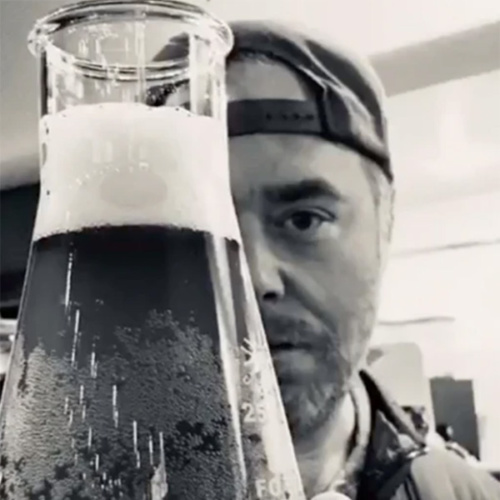
Cut Chemist
Cut Chemist has been recording and performing for nearly 30 years. Known as a turntablist, he started his journey into DJing at age 11. By the time he was 14 years old, Cut started recording with his friends (including Chali 2na of Jurassic 5) in an enclosed sun patio that his dad converted into a small make-shift recording studio.
By age 21, Cut was a founding member of both the rap group Jurassic 5 and the Grammy award-winning Latin funk outfit, Ozomatli. His involvement with both groups helped develop a taste for music and rhythms from around the world while keeping his passion for the hip hop tradition. His mix-tapes and remixes became critically acclaimed.
His ‘Chemist’ moniker was fully realized with his instrumental, Lesson 6: The Lecture. In the years following, Cut started a series of mix cds with DJ Shadow using all 45s: Brainfreeze, Product Placement and The Hard Sell, the last of which debuted and headlined at the world-famous Hollywood Bowl.
Cut’s solo album journey would begin with The Audience Is Listening which was released on Warner Bros in 2006. Following his major label stint, he decided to create his own boutique label that would allow him more freedom. Sound Of The Police, Funk Off Mega Mix & his sophomore solo album, Die Cut were his most notable releases. Although these albums may sound very different from one another, they all have a single thing that ties them together — Cut Chemist pushes boundaries on all of them, testing our musical palates while introducing us to obscure musical finds.
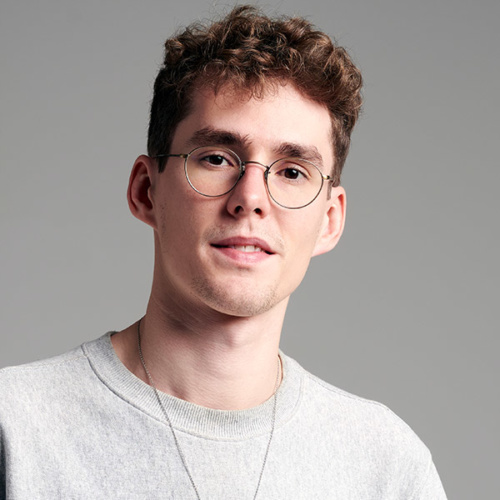
Lost Frequencies
Felix De Laet, better known by his moniker Lost Frequencies, has soared to success in the international music industry over the past half-decade. Releasing his global smash hit “Are You With Me” back in 2014 with the track rapidly ascended by hitting multi-platinum status, taking the #1 spot in 18 countries and becoming the first Belgian artist to hit #1 in the UK.
Proving that he is no one-trick pony in the studio, “Reality” evidenced as another major smash hit from that, and flew to platinum status in no less than 7 territories, before the release of his debut album Less Is More (2016), and sophomore follow-up Alive And Feeling Fine (2019), showcased his enthusiasm, dedication to craft and sheer skill all whilst playing the long game.
As well as this, a zig-zag of global dates at the world’s most important festivals including Coachella, Tomorrowland, Lollapalooza, closing down EDC Vegas in spectacular solo style, and a hugely impressive arena run with fellow chart-dominators The Chainsmokers; another year sparkled bright for the superstar. And it didn’t end there…
Solidifying himself further as a trailblazer in the scene, in 2018 Lost Frequencies amassed over 1 billion streams and ripped up the rule book on his tropical-infused official remixes on Major Lazer, Justin Bieber & MØ’s “Cold Water,” Miley Cyrus’s “Malibu, LSD Labrinth/Diplo/Sia’s “Thunderclouds,” as well as Ellie Goulding’s “Worry About Me,” showing that his unique electronic style can lend itself to multi-dimensional pop and still deliver an inimitable sound as the hits just kept on coming.
Leading on from the announcement of his long-awaited second album Alive And Feeling Fine, Lost Frequencies also announced his first-ever fully-live tour, with a dozen dates split between both the USA and Europe hitting major cities all over these continents; comprised of completely his own original material, compositions and all-new presentations, Lost Frequencies is bringing an innovative, fresh interpretation to his sound that so many have come to know and love.
With magical performances from New York and LA, to Berlin and Paris, sold-out shows have also wowed across the board at cities including Paris and Cologne with extra shows added in Amsterdam due to phenomenal demand.
Leading on since the announcement, Alive was released into the world in October with initial singles “Truth Never Lies” feat Aloe Blacc and “Black and Blue” with Mokita, with the full-length going on to, deservedly, snatch up a constellation of chart spots including the #1 Dance Chart position in Belgium, France, Cambodia, and Hong Kong, #2 Dance position in the USA and Switzerland, as well as Main Chart positions that included #4 (Belgium) and further positions within the Top 30 Main Charts across Austria, Germany, Cambodia, Lebanon, and Hong Kong.
Lost Frequencies also firmly established himself as one of the strongest, fastest rising talents with his debut entry into the 2017 DJ Mag poll at #26, the highest new entry of any artist that year, when further placing in 2018 and most recently 2019, that saw him ride high at #20. As the accolades multiplied including emerging victorious in the “Dance International” and “Hit of The Year” categories at the ECHO award ceremony (comparable with the U.S. Grammys), beating the likes of Adele on the latter two.
After the successes of his Lost Frequencies and friends-curated parties globally, he took the party to Tomorrowland for the third year in 2019, hosting guests including Robin Schulz, Armand van Helden, Sigala, Felix Jahen, Nora En Pure, and many, many more, showcasing the huge appeal held by Lost Frequencies not only in his home of Belgium but amongst the world-class, diverse Tomorrowland crowd.
Branching out furthermore since the launch of his label Found Frequencies that has not only featured his own productions from Alive And Feeling Fine including names such as James Blunt, Zonderling, but also a host of new artists including FROTZ, Jameson, Pretty Pink to name but a handful of link-ups on the imprint. From show-stopping live appearances to career-making studio hits, Lost Frequencies continues to soar to a meteoric rise of his own accord.
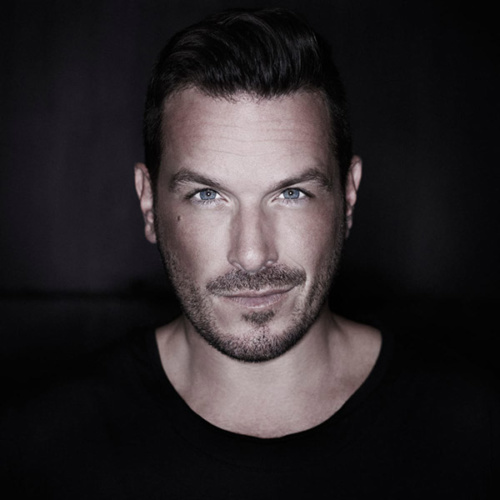
Plastik Funk
Spanish-born, Germany-based Plastik Funk is a renegade within modern electronic dance music that, as European DJs and Producers continue to dominate and entice, leads the charge with an impressive collection of accolades, mind-boggling energy and world-class releases to solidify his status.
With an ever-growing amount of multi-million streamed tracks to his name including the UK chart-smashing “Dr.Who” alongside Tujamo and Sneakbo (clocking in at 6 million Spotify plays alone) to his recent collaboration alongside Aussie sisters NERVO and Tim Morrison — “Dare Me” on the mighty Spinnin’ Records, which has received over 2 million streams and still climbing! Plastik Funk continues to take his “bliss house” sound to audiences around the world.
Whether he’s collaborating with elite artists such as Timmy Trumpet and Alle Farben, or remixing the likes of Robin Schulz, David Guetta, or Robyn, the core of Plastik Funk’s sound is all about the party. From club shows to mainstage festival arenas it’s that bass-driven, bouncing house style that never fails to ignite a dancefloor and have the crowd in pure hysteria.
From early nods by dance royalty like Bob Sinclair who invited Plastik Funk to join him at his ADE (Amsterdam Dance Event) showcase, and by none other than the late Avicii who previously invited him on-stage at his Ushuaia Ibiza Sunday residency, Plastik Funk has since gone on to prove this high praise around his talents was justified.
Appearing on the mainstages of the world’s biggest club, World Club Dome and Ultra Europe, as well as performing scorching live sets at some of the scene’s biggest and most exciting events including Tomorrowland and Parookaville, Plastik Funk has also delivered rip-roaring performances across headline, solo tours of Asia, Europe, North America and beyond. In 2019 alone he performed 195 shows in his continent-hopping DJ schedule.
With worthy, double-figure Beatport Top 10’s, a string of releases on equally impressive labels such as Spinnin’ Records, Smash The House, and Mixmash, Plastik Funk is set to usher in a new era of excellence in 2020. With a stacked release schedule that is set to reveal some of his finest studio tracks to date, a dot-to-dot constellation of tour shows that will have him shaking dancefloors across the globe, the best is surely yet to come….
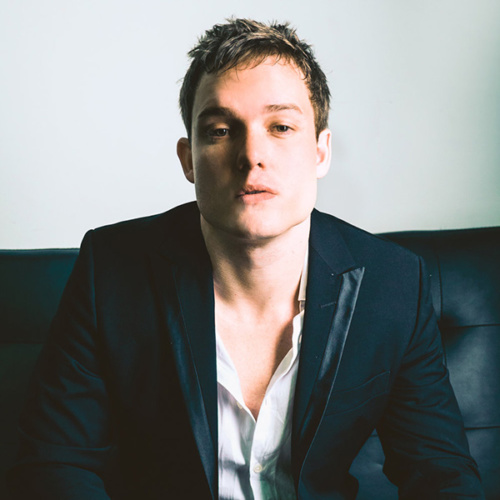
tyDi
Through his extensive discography, which includes five full-length albums, countless singles and remixes, and numerous EPs across diverse genres on various labels from Republic to Armada, tyDi has topped global charts, toured the world, and made an indelible mark on the music world. Last year, the prolific Australian Producer/DJ made waves with his acclaimed collaboration with Grammy-winning Composer Christopher Tin, resulting in the epic album Collide, “a masterful navigation of orchestral and electronic elements,” according to Dancing Astronaut.
The album also received accolades in DJMag, The LA Times, as well as placement on Friday Cratediggers and New Music Friday USA Spotify playlists, and hit both the Billboard dance and classical charts. tyDi has also collaborated with the Grammy-nominated Singer JES, trance music legend Andy Moor, Producer Matt Fax and many more.
A blissful balm of a song, tyDi’s recent single “It Will Be Okay” has been called “a progressive trance anthem for the ages” by Dancing Astronaut. The song received a significant 2K pre-saves on Spotify, as well as airplay on SiriusXM BPM, iHeartRadio Evolution, Nexus Radio and Dance Factory Chicago. “Sunrise,” a song from his chill side project Wish I Was, was added to SiriusXM Chill and hit #1 on blog aggregator Submithub’s electronic chart.
tyDi has also contributed his own reimagined arrangements of some Disney’s most beloved anthems for the current Disney on Ice world tour. He has also composed commercial music for Stella Artois, Quickbooks (their 2019 Oscars ad), and Swarovski TV ads. He’s composed music for an acclaimed PSA campaign for The Make-A-Wish Foundation. For his film/TV/ad work, tyDi is represented by Fortress Talent Management.
tyDi has 1 million aggregate social followers, over 25 million Spotify streams and over 1 million YouTube views. He is also an expert at engaging his fanbase on his socials, garnering huge responses to his posts and promotions, with thousands of likes/comments/shares. A remix contest run in conjunction with Splice.com was incredibly successful with 7,100 plays of the track, 1,600 downloads of the stems, and 137 total submissions.
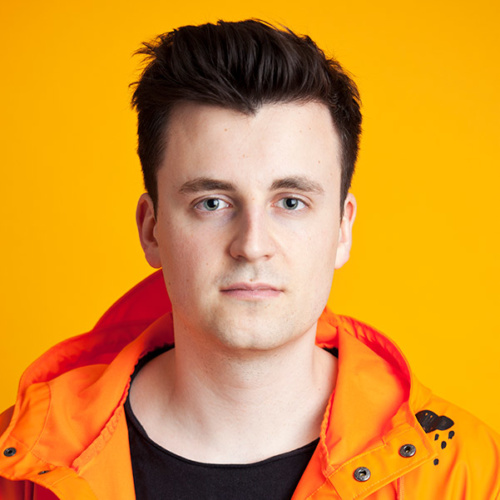
Luca Schreiner
After honing his craft as a Music Producer for over four years, 24-year old Luca Schreiner from Stuttgard decided to take center-stage as a performer with huge success. His style varies between classic dance, tropical influences, and elements of the pop world.
Luca’s unique mix of sounds brings a new freshness to the music industry and provides a distinctly elegant listening experience. Luca is currently signed with Ultra Music and has had huge success with several remixes for the likes of Clean Bandit, Kelly Clarkson, Professor Green, Vance Joy, Louis Tomlinson, ZAYN, Alessia Cara, Nina Nesbitt, Why Don’t We, Sia, James Arthur, Matoma, Shaggy, Pitbull and many more.
After his tremendous debut single, “Missing” on Ultra, which covers the old-time classic from Everything But The Girl, Luca got asked to do several remixes for some of the biggest labels of today’s music business including Atlantic, Universal, Def Jam, Ultra, Sony, Armada and more. His Spotify numbers are incredible, he has reached over 95 million streams on Spotify alone and even more on other platforms.
Besides Luca’s successful productions he also played at some of the biggest festivals and clubs in the world like the Ferdinands Feld Festival, World Club Dome, Marquee New York, and World Club Cruise next to artists like Oliver Heldens, Don Diablo, Felix Jaehn, Kungs, Jonas Blue and many more! At just 23, he’s showing real promise and we can’t wait to see what he continues to achieve within the realms of the music industry.
References
- 1Multiple. "Average Disc Jockey (DJ) Hourly Pay". PayScale. published: Nov 11, 2019. retrieved on: July 1, 2020
- 2Mercuri, Monica. "The World’s Highest-Paid DJs 2019: The Chainsmokers Topple Calvin Harris With $46 Million". Forbes. published: 29 July 2019. retrieved on: 1 July 2020
